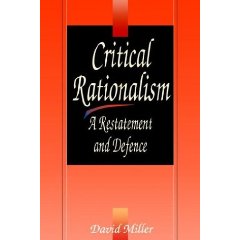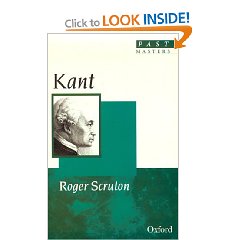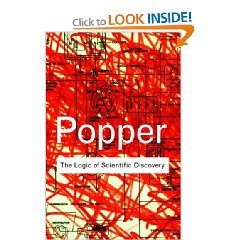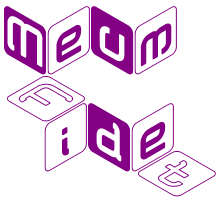In looking at a thesis that considers the nature of learning itself through a narrative methodology, I am aware there are tensions in several areas that will have to be addressed. For the method these tensions surround the usefulness of narratives and their applicability for a wider audience; this includes concepts of what can be considered knowledge and notions of subjectivity and objectivity. Successfully arguing my case in these factors is of high importance as without doing so potentially renders my research invalid…
My methodological argument to date is that subjective narrative accounts and interpretive analyses are reasonable and useful to a wider audience than is generally apparent. Whilst I know this stance is going to attract a fair degree of criticism, I hope to show that readings from Kant, Hume, Popper and Kuhn establish a valid argument for using such methods.
Following my dive into epistemological waters, I will look at papers closer to the research subject itself.
My readings so far have followed these themes of:
- Subjectivity Vs Objectivity
- Truth and issues of determining truth
- Epistemology of truth in praxis
This has been haphazard at times and I have secumbed to wandering off-topic many times, but I have managed to remind myself of the argument I need to achieve and have kept notes of my thinking – it might have helped to keep a blog I suppose, but to be honest I needed to be able to write and revise at any time, not just when I am in front of the PC.
Is subjective research valid?
Originally I started with Leibniz and the idea of rationalism – that is, the idea that all knowledge is derived or derivable from the exercise of reason alone. In this ideology the world is an objective place uncontaminated by the subjective experiences of the observer. Leibniz considered the separation of observer from that observed and this led me to Hume.
Hume was essentially an empiricist and argues that knowledge comes from experience alone and that there is no way to separate that which is known from the subjective condit ions of the observer. From this I gained the idea that thoughts must be contextualised in terms of the experiences from which they derive. Certainly, Hume (claims Miller, see below) demonstrated that all generalisations are unreliable.
ions of the observer. From this I gained the idea that thoughts must be contextualised in terms of the experiences from which they derive. Certainly, Hume (claims Miller, see below) demonstrated that all generalisations are unreliable.
However, Hume leads on to Kant and Kant was formidable in his use of logic to suggest that both Leibniz and Hume were incorrect in their absolutist approaches saying “Neither experience or reason alone are able to provide knowledge – The first provides content without form and the second form without content; only by synthesis is knowledge possible.” Kant maintained that freedom from subjectivity would employ concepts that “…refine away every element of meaning” and that although he agreed with both Leibniz and Hume on several points, the use of subjectivity to characterise an objective world was the reality of knowledge.
Central to Kant’s position is his philosophy of the ‘transcendental unity of apperception’ which is the premise of self-consciousness that ‘proves’ or describes the condition of subjectivity in relation to an objective reality. However, this point of view (according to Kant) is only understandable when the concept of an objective reality is recognised – the so-called ‘Transcendental Deduction’.
Scruton, analysing Kant’s philosophy, suggests Wittgenstein in “Philosophical Investigations” shares Kant’s premise and conclusions of the Transcendental Deduction, relying on discussions about referen ce and meaning. He argued that knowledge of experience is only meaningful when referenced to the wider world and the wider world is observable to others beside oneself.
ce and meaning. He argued that knowledge of experience is only meaningful when referenced to the wider world and the wider world is observable to others beside oneself.
If valid, the Transcendental Deduction is potentially of great significance to my research as it establishes an objectivity of the world whilst assuming no more than one’s own subjective view on it. Therefore, all questions I ask must be from my own view of the world – it is not possible for me to remain objective. Whether I can expand this argument in detail depends on feedback and trying to defend this position… It sounds vaguely plausible, but I am sure there are a great many details I haven’t considered.
How do we know what is true?
Induction, that is the observation of patterns with which we believe we are able to predict the next in the sequence, is one of the most contested philosophical points I have yet come across. It seems to be something we all take for granted (I know I believe the Sun will rise tomorrow because it has…well since forever as far as I’m concerned) and yet interms of ‘truth’ and proven truths, it is far from acceptable to many of the writers I have encountered. The reason for this lies in the detail – ‘induction’ primarily describes the reasoning that travels from a specific study to a generalised conclusion. Now, on the face of it, this sounds like a seriously good argument in favour of subjective research such as interpretive narratives, but there are strong reasons as to why induction should be used with care:
Initially, we can refer back to Hume who said something along the lines of “…adding evidence to the enquiry may change or weaken the conclusion…” (paraphrased by me) meaning that if the Sun didn’t rise tomorrow, all of my assumed previous knowledge would be seen to be wrong. However, throughout my readings which include Kuhn who advocates scientific methods of induction and Popper who vehemently doesn’t, I have found no-one who has said they don’t use this method in everyday life. As beings we are given to drawing conclusions throughout our lived experiences in order to make use of them should similar experiences occur in the future. This resonates with the concepts of infralogical and logological learning that I explored in my last paper and wish to explore further in my thesis.
Hume defined the problem with induction thus (Musgrove):
* We reason, and must reason, inductively.
* Inductive reasoning is logically invalid.
* To reason in a logically invalid way is irrational
* Therefore we are, and must be, irrational.
Which Musgrove interpreted to mean that “…it is only reasonable to believe what has been shown (by experience) to be true – therefore any experience-transcending or evidence-transcending belief is unreasonable“. This causes us a few problems in that, unless we agree in a completely evidence-based world of truths as did Hume, any evidence-transcending hypothesis needs some work. Kant answered the difficulty of Inductive scepticism in part and discounted the end result of irrationalism as non-reasoned.
Popper sought to find alternatives to induction and what he perceived derisorily as justificationism in scientific method – essentially he felt that science “…had come to be envisaged as the accumulation of highly confirmed or highly probable hypotheses and only derivitavely as an  accumulation of truths“. In this I can see his exasperation in the common usage of the word ‘truth’ which actually is a set of agreed understandings – nowhere near ‘truth’ and certainly not confirmed.
accumulation of truths“. In this I can see his exasperation in the common usage of the word ‘truth’ which actually is a set of agreed understandings – nowhere near ‘truth’ and certainly not confirmed.
Knowledge of truth in the practice/theory/research interface
This was a very deep philosophical read which stretched me intellectually, to say the least. Popper is not easily understood – even by those who claim to support him – and there are more than one author who beleives Popper wasn’t always sure himself of some of his arguments…what chance do I have! Anyway, I persevered and managed to find several writers who could restate his arguments in slightly more readable terms. Miller is one of Poppers advocates, but is also quite difficult to follow – whether it is the writer or the subject matter is debateable. Certainly Miller assumes Poppers ideologies of falsificationism to be of greater scientific value than that of justificationism, which might be an avenue to pursue in order to support the value of certifying truth in my research.
To be continued…
